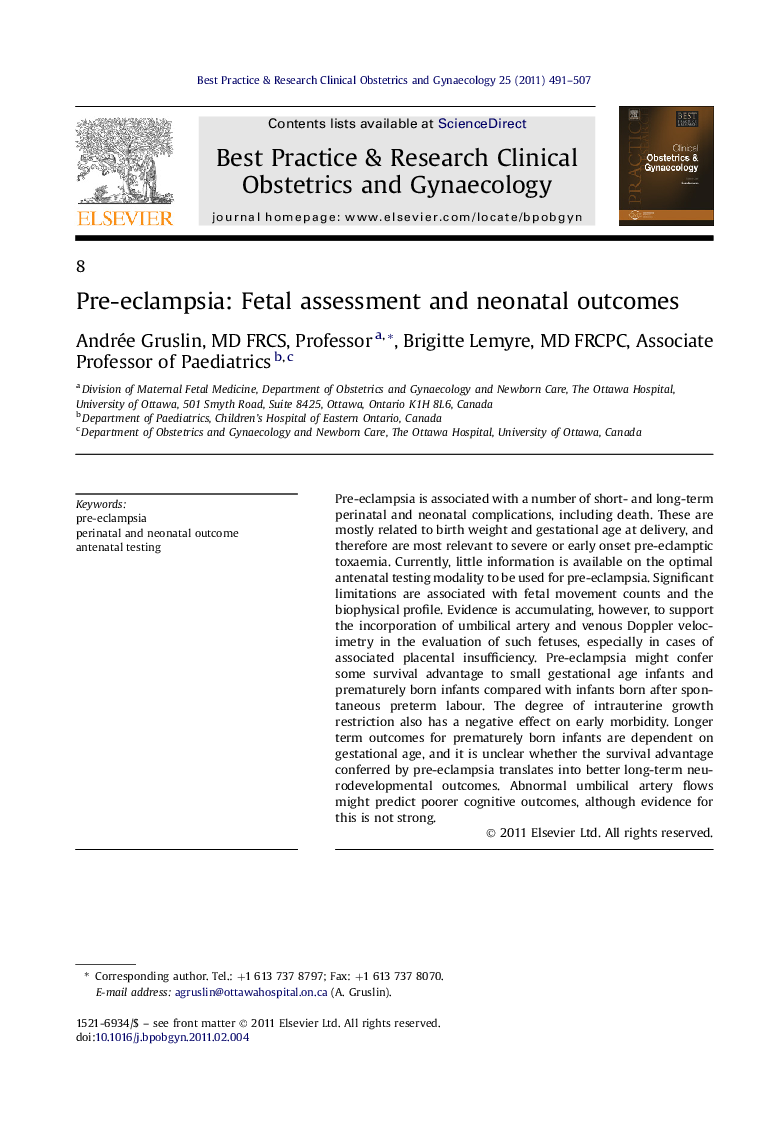| Article ID | Journal | Published Year | Pages | File Type |
|---|---|---|---|---|
| 6169318 | Best Practice & Research Clinical Obstetrics & Gynaecology | 2011 | 17 Pages |
Pre-eclampsia is associated with a number of short- and long-term perinatal and neonatal complications, including death. These are mostly related to birth weight and gestational age at delivery, and therefore are most relevant to severe or early onset pre-eclamptic toxaemia. Currently, little information is available on the optimal antenatal testing modality to be used for pre-eclampsia. Significant limitations are associated with fetal movement counts and the biophysical profile. Evidence is accumulating, however, to support the incorporation of umbilical artery and venous Doppler velocimetry in the evaluation of such fetuses, especially in cases of associated placental insufficiency. Pre-eclampsia might confer some survival advantage to small gestational age infants and prematurely born infants compared with infants born after spontaneous preterm labour. The degree of intrauterine growth restriction also has a negative effect on early morbidity. Longer term outcomes for prematurely born infants are dependent on gestational age, and it is unclear whether the survival advantage conferred by pre-eclampsia translates into better long-term neurodevelopmental outcomes. Abnormal umbilical artery flows might predict poorer cognitive outcomes, although evidence for this is not strong.
